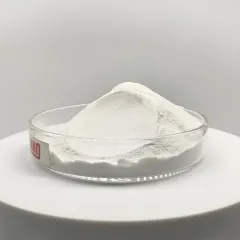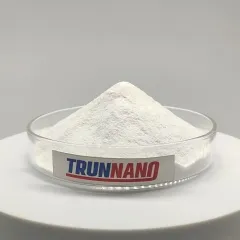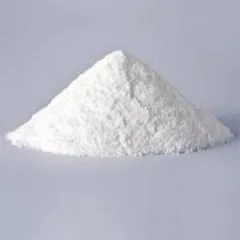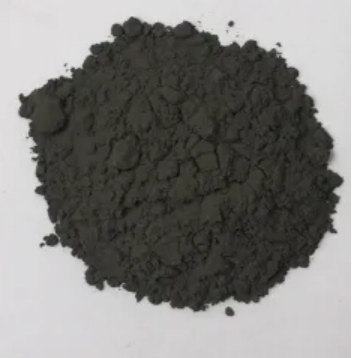Sodium Silicate: the Wide Use and Relevance of a Versatile Chemical Material
Salt silicate, likewise called water glass or bubbly soft drink ash, is a not natural substance with the chemical formula Na ₂ SiO ₃. It is a water-soluble salt made up of silica (SiO ₂) and salt oxide (Na ₂ O) and plays a vital duty in numerous areas such as industry, construction, chemical industry, and paper-making because of its special chemical properties and wide range of uses. Sodium silicate is a white or a little yellow solid, usually in the type of powder or service. It has a density of about 2.40 g/cm ³ and a melting point of concerning 1088 ° C. Salt silicate is highly alkaline, with a pH worth usually in between 11.5 and 12.5. It is highly soluble in water and can creating viscous remedies which have excellent gelling and adhesive residential properties. The main chemical properties include: alkaline – salt silicate remedy is strongly alkaline, can neutralize acidic compounds, and is commonly used in acid-base neutralization reactions; gelling – salt silicate solution can develop gel-like materials under particular conditions, with good bond and film-forming properties; Warmth resistance – sodium silicate has high warmth resistance, also at heats will certainly not decay, suitable for applications in high-temperature settings; Stability – at space temperature level, salt silicate service is much more steady, but at heats or acidic settings will gradually decompose. Sodium silicate can be prepared by a variety of approaches, of which the most typical technique is with the response of silica and salt hydroxide. The certain steps are as adheres to: initially, prepare silicon dioxide (SiO ₂) and sodium hydroxide (NaOH), then blend both in a specific proportion, and perform the reaction at a high temperature; after the reaction is finished, eliminate the contaminations by filtering, and concentrate the filtrate to the needed focus, and finally cool down the focused remedy to form strong salt silicate. An additional typical preparation technique is to extract salt silicate from a combination of quartz sand and soft drink ash (salt carbonate). The specific actions are as follows:
(Sodium Silicate Powder)
1. Prepare quartz sand (SiO ₂) and soft drink ash (Na ₂ CARBON MONOXIDE ₃).
2. Mix the two according to a particular proportion, melt them at a high temperature, dissolve the molten item in water, filter to get rid of insoluble matter, and concentrate the filtrate.
3. Form solid salt silicate after cooling down.
(Sodium Silicate Powder)
Sodium silicate has a wide range of applications in numerous fields because of its distinct chemical and physical properties. In building materials, salt silicate is used as an additive for concrete to enhance its toughness, longevity and impermeability. Sodium silicate service can be coated externally of timber and other combustible products to form a fireproof film and improve the fire resistance of the materials. Salt silicate option can also permeate the interior of building materials to develop an impenetrable movie that works as a waterproofing representative. In commercial cleansing, sodium silicate remedy can be utilized to clean scale and corrosion from the within central heating boilers, enhancing their effectiveness and life. Salt silicate service can additionally get rid of oil and dust from steel surfaces, improving the cleanliness of steel surface areas. In the paper sector, sodium silicate can be used as a pulp bleaching agent to improve the whiteness and high quality of paper, as well as to boost the strength and tear resistance of paper, boosting the life of paper. In textile sector, salt silicate can be utilized as an auxiliary agent for dyes to enhance the attachment and shade illumination of dyes, and it can additionally be used in the completing of fabrics to boost the feeling and appearance of fabrics. In chemical production, salt silicate can be utilized as a catalyst for sure chain reactions to improve the reaction price and yield and is also among the vital raw materials for the manufacturing of silica gel, which is extensively used in the fields of adsorbents, stimulant providers and so on. In the field of farming, salt silicate can be utilized as a soil conditioner to promote the fertility and water retention of the dirt, and it can also advertise the advancement of the plant root system and improve the return and high quality of crops.
Although salt silicate has a vast array of applications in lots of areas, it is still necessary to problem its safety and security and environmental protection problems in the process of use. In regards to security, salt silicate option is strongly alkaline, and call with skin and eyes might create irritability or burns; safety handwear covers and glasses should be worn when using. Breathing of sodium silicate dirt or vapor may create respiratory system pain; great ventilation needs to be kept during procedure. Unexpected consumption of sodium silicate may create intestinal irritation or poisoning; if mistakenly swallowed, prompt clinical attention must be looked for. In order to ecological friendliness, the discharge of sodium silicate service right into the atmosphere may impact the aquatic ecosystem. As a result, the wastewater after usage need to be appropriately dealt with to make sure compliance with ecological criteria before discharge. Waste salt silicate solids or solutions must be taken care of according to contaminated materials therapy guidelines to prevent contamination of the setting. In addition, sodium silicate should also focus on conserving energy and exhaust reduction in the process of production and utilize to lower the waste of sources and environmental pollution and attain lasting development.
(Sodium Silicate Powder)
In summary, as a multifunctional chemical compound, salt silicate plays an irreplaceable duty in many areas because of its superb chemical residential or commercial properties and large range of uses. From building materials to industrial cleansing, from the paper sector to the fabric industry, and from chemical manufacturing to farming, salt silicate has actually revealed outstanding efficiency. Nevertheless, in the process of usage, we have to also focus on its security and environmental management to ensure that it brings benefit without adversely influencing human wellness and the environment. With the development of scientific research and innovation, it is believed that sodium silicate will reveal new application prospects in even more areas. Salt silicate will not only remain to grow its application in existing areas yet additionally might find brand-new application situations in brand-new products, brand-new energy and various other arising areas, bringing more possibilities for the development of human culture.
TRUNNANO is a supplier of Zirconium Diboride with over 12 years of experience in nano-building energy conservation and nanotechnology development. It accepts payment via Credit Card, T/T, West Union and Paypal. Trunnano will ship the goods to customers overseas through FedEx, DHL, by air, or by sea. If you want to know more about dry sodium silicate, please feel free to contact us and send an inquiry(sales8@nanotrun.com).
All articles and pictures are from the Internet. If there are any copyright issues, please contact us in time to delete.
Inquiry us



